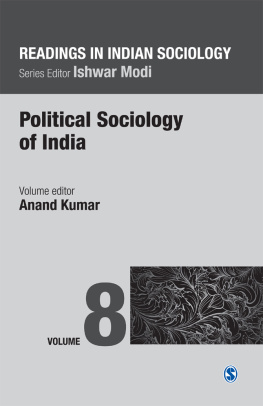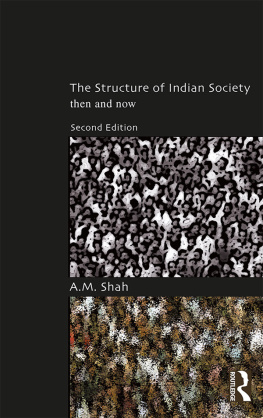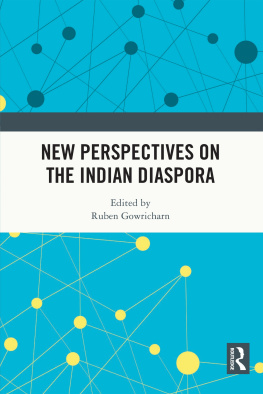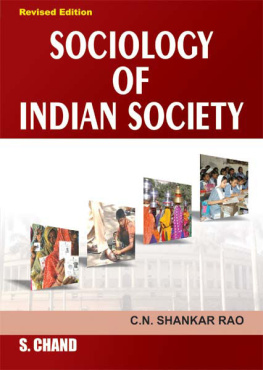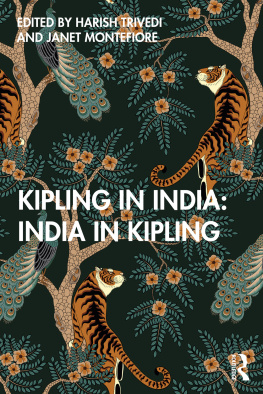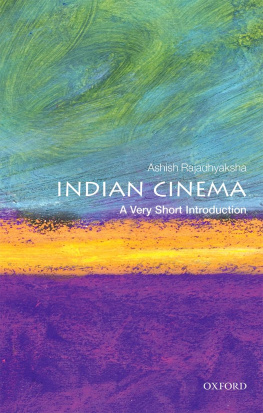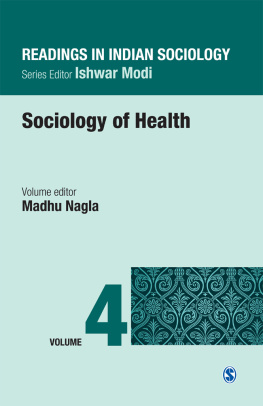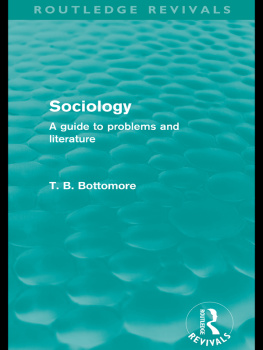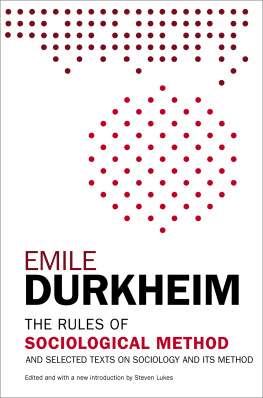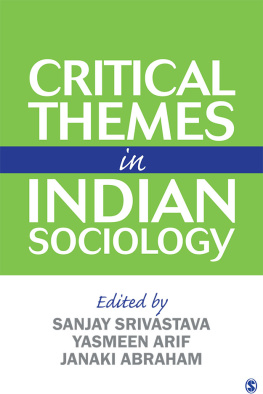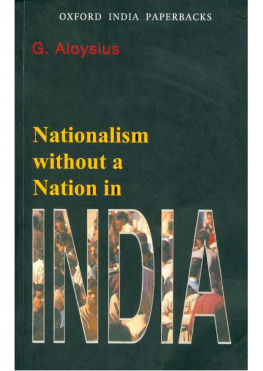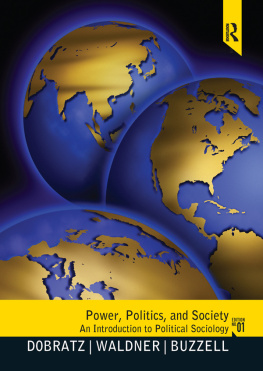About the Editor and Contributors
The Editor
Anand Kumar is a professor of Sociology at Centre for the Study of Social System, School of Social Sciences of Jawaharlal Nehru University in New Delhi. He has also taught at Banaras Hindu University (Varanasi), Kashmir University (Srinagar), Albert Ludwig University (Freiburg), Johannes Keppler University (Linz) and Tufts University (Medford). His contributions include State and Society in India, Nation-building in India, Quest for Participatory Democracy, Understanding Globalization and Emerging India, and Tibet Resourcebook. He has been honoured with Vice Chancellor's Gold Medal, National Scholarship to Study Abroad, DAAD Fellowship, India Chair in Germany, and Fulbright - Nehru Professorship in the United States.
The Contributors
A.R. Desai was professor and head of Department of Sociology, University of Bombay, Mumbai.
Andr Bteille is Professor Emeritus, Delhi School of Economics, University of Delhi, Delhi.
B.K. Roy Burman was professor in Viswa Bharati University, Senior Professor and ex-officio Director Council of Social Development, New Delhi.
B.S. Baviskar was professor of Sociololgy at University of Delhi and Senior Fellow, Institute of Social Sciences, New Delhi.
Brij Raj Chauhan was professor and head in the Department of Sociology at Meerut University, Meerut.
C. Parvathamma was professor and head of the Department of Sociology, University of Mysore, Mysore.
Dipankar Gupta is Professor, Centre for the Study of Social Systems, School of Social Sciences, Jawaharlal Nehru University, New Delhi.
Ehsanul Haq is Professor, Centre for the Study of Social Systems, School of Social Sciences, Jawaharlal Nehru University, New Delhi.
John C.B. Webster is a historian associated with Presbyterian Seminary of India.
K.L. Sharma is Vice-Chancellor, Jaipur National University, Jaipur, Rajasthan.
M.S.A. Rao was Professor of Sociology and Head of Department of Sociology at the University of Delhi, Delhi.
N.R. Sheth is Professor, Gujarat Institute of Development Research, Ahmedabad, and Director, Indian Institute of Management, Ahmedabad.
P.K.B. Nayar is Professor of Sociology, University of Kerala, and Chairman, Centre for Gerontological Studies, Thiruvananthapuram.
Partha N. Mukherji is Professor of Sociology at Indian Statistical Institute and Emeritus Professor, Institute of Social Sciences, New Delhi.
S.N. Eisenstadt is Professor, Hebrew University, Jerusalem, Israel.
Harriet Hartman is Professor, Ben-Gurion University of the Negev, Israel.
Sujata D. Hazarika is from Department of Humanities and Social Sciences, Indian Institute of Technology, Guwahati.
T.K. Oommen is Professor Emeritus, Centre for the Study of Social Systems, School of Social Sciences, Jawaharlal Nehru University, New Delhi.
Vibha Arora is Associate Professor in Department of Humanities and Social Sciences, Indian Institute of Technology, Delhi.
Vinod K. Jairath is Professor of Sociology, Department of Sociology, School of Social Sciences, University of Hyderabad, Hyderabad.
Yogendra Singh is Professor Emeritus, Centre for the Study of Social Systems, School of Social Sciences, Jawaharlal Nehru University, New Delhi.
Acknowledgement
I t gives me great pleasure to express my gratitude to the following without whose kind cooperation this volume may not have been possible in the present form as part of the series to mark the Diamond Jubilee Decade of Indian Sociological Society:
The president of Indian Sociological Society, Professor Ishwar Prasad Modi, and the members of the managing committee of ISS for assigning the editorship of this collection of essays;
All the authors whose valuable contributions have been selected from the Sociological Bulletin numbers for this volume about political sociology of India;
Shri Sarada Prasanna Das, PhD scholar at Centre for the Study of Social Systems, School of Social Sciences, Jawaharlal Nehru University, New Delhi, for his valuable and multiple assistance in this work;
Dr. Manjula Rathaur, my wife and a sociologist, for her understanding and support which helped me in completing this task; and
The team of SAGE publications India for their kind cooperation in presenting this volume in time.
Anand Kumar
New Delhi
Appendix of Sources
All articles and chapters have been reproduced exactly as they were first published. All cross-references can be found in the original source of publication.
Grateful acknowledgement is made to the following sources for permission to reproduce material for this volume.
- Caste and Class: Some Aspects of Continuity and Change, Yogendra Singh
Vol. 17, No. 2 (September), 1968: 165186. - Hierarchical and Competitive Inequality, Andr Bteille
Vol. 51, No. 1 (JanuaryApril), 2005: 321. - Sociological Issues in the Analysis of Social Movements in Independent India, T.K. Oommen
Vol. 26, No. 1 (March), 1977: 1437. - Movements of Protest, Construction of Centres and State Formation in India and Europe, S.N. Eisenstadt and Harriet Hartman
Vol. 43, No. 2 (September), 1994: 143159. - The Indian State in Crisis? Nationalism and Nation-Building, Partha N. Mukherji
Vol. 43, No. 1 (March), 1994: 2149. - The Panchayati Raj and the Democratic Polity, Brij Raj Chauhan
Vol. 17, No. 1 (March), 1968: 3654. - Trade Unions in IndiaA Sociological Approach, N.R. Sheth
Vol. 17, No. 1 (March), 1968: 518. - Civil Society, State and Democracy: Lessons for India, P.K.B. Nayar
Vol. 50, No. 2 (September), 2002: 206218. - Democracy and Leadership: The Gendered Voice in Politics, Sujata D. Hazarika
Vol. 57, No. 3 (SeptemberDecember), 2008: 353370. - Meaning and Process of Tribal Integration in a Democratic Society, B.K. Roy Burman
Vol. 10, No. 1 (March), 1961: 2740. - Landholding Pattern and Power Relations in a Mysore Village, C. Parvathamma
Vol. 17, No. 2 (September), 1968: 203225. - The Mid-Term Poll in a Village in Outer Delhi Constituency, M.S.A. Rao
Vol. 21, No. 1 (March), 1972: 1734. - Nation-State and Open Systems of Stratification: Making Room for the Politics of Commitment, Dipankar Gupta
Vol. 48, No. 1&2 (March & September), 1999: 5973. - Understanding the Modern Dalit Movement, John C.B. Webster
Vol. 45, No. 2 (September), 1996: 189204. - Assertive Identities, Indigeneity, and the Politics of Recognition as a Tribe: The Bhutias, the Lepchas and the Limbus of Sikkim, Vibha Arora
Vol. 56, No. 2 (September), 2007: 195220. - Relevance of the Marxist Approach to the Study of Indian Society, A.R. Desai
Vol. 30, No. 1 (March), 1981: 120. - Co-operatives and Castes in Maharashtra: A Case Study, B.S. Baviskar
Vol. 18, No. 2 (September), 1969: 148166. - Power Elite in Rural India: Some Questions and Clarifications, K.L. Sharma
Vol. 25, No. 1 (March), 1976: 4562. - Education and the Emerging Patterns of Political Orientations: A Sociological Analysis, Ehsanul Haq
Vol. 32, No. 1 (March), 1983: 3559. - Studying Communal Riots in India: Some Methodological Issues, Vinod K. Jairath
Vol. 54, No. 3 (September-December), 2005: 443462.
1
Caste and Class: Some Aspects of Continuity and Change
Yogendra Singh
A review of the studies on caste and class in contemporary India could be undertaken in terms of available replies to a set of questions, such as: what is the nature and reality of caste and class in Indian society today? In what ways are changes at the level of these two categories interlinked, or generate processes significant to the transformation of the system of social stratification? And, what bearing have these processes upon the modernisation of Indian society? The following pages are devoted to a treatment of these questions in the light of some recent studies on caste and class.

